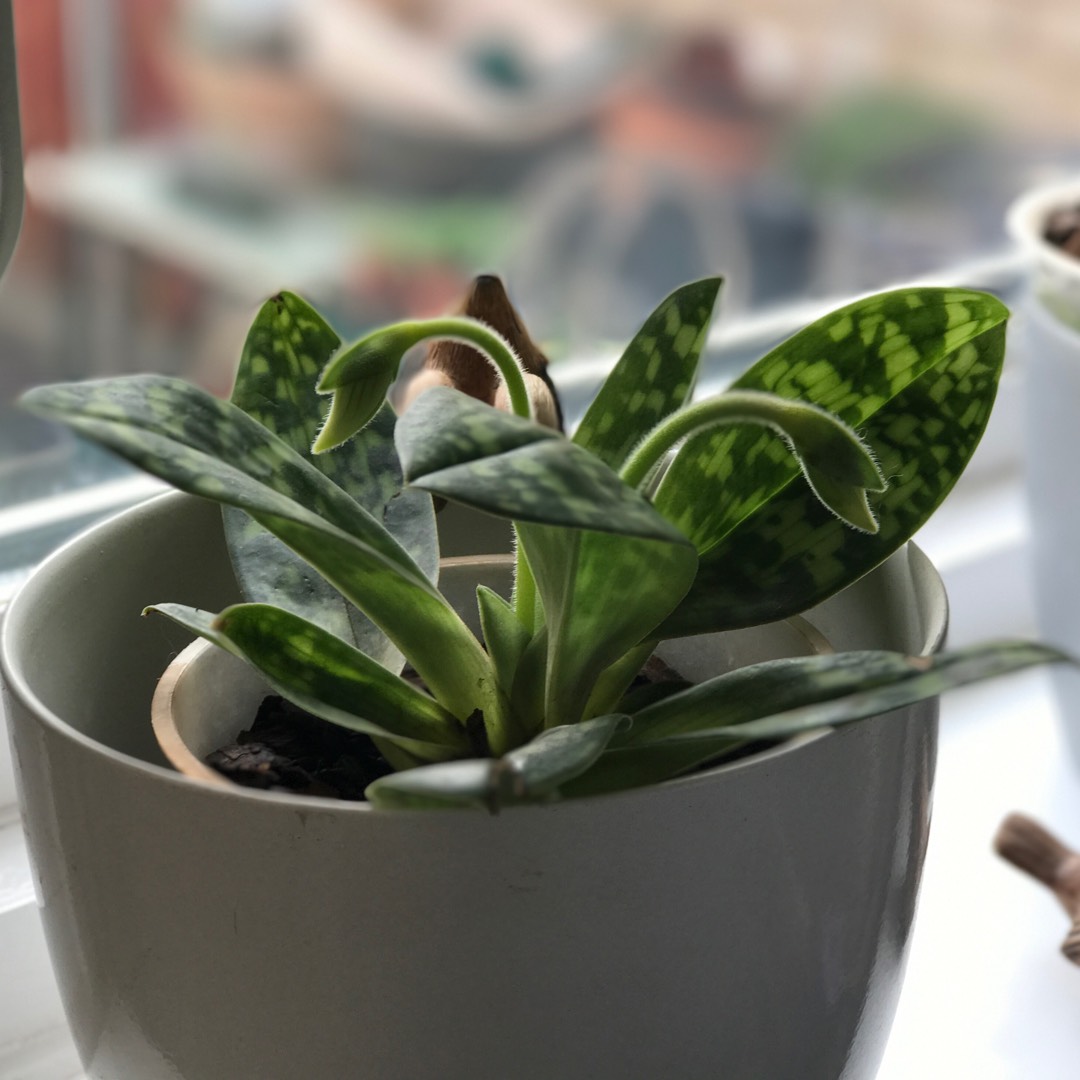
Paphiopedilum maudiae 'Femma'
Paphiopedilum Maudiae 'Femma'
Slipper orchids are mostly terrestrial orchids (i.e. they grow in the ground), but unlike many other terrestrial orchids, they do not produce pseudobulbs at the base of their stems. They are relatively easy to grow, as long as they have moderate to high humidity (50-70%), and temperatures ranging from 10-25°C (50-77°F) with a minimum winter temperature of 10-13°C (50-55°F). The mottled-leaved varieties need a warmer temperature - a minimum night temperature of 18°C (65°F) and a daytime temperature of 20-30°C (68-86°F) with high humidity. Slipper orchids need bright, indirect light. They can bloom at any time of the year, but generally flower from mid to late Autumn through to early Spring, with the flowers lasting up to 3 months. The common name "Slipper Orchid" comes from the flower's lip being slipper-shaped. Paphiopedilum maudiae 'Femma' is a warm-growing, mottled-leaved type of slipper. It is ideal for orchid 'beginners' and is easy to grow. The mottled-leaved types do better with a night temperature of 60-65F. Day temperatures should range between 70-80°F.
-
Partial shade
-
Occasional watering
-
Not Frost hardy
-
Moist and free draining
Common name
Paphiopedilum Maudiae 'Femma'
Latin name
Paphiopedilum maudiae 'Femma'
type
Flowering plant
family
Orchidaceae
ph
5.0 - 7.5 Acid - Neutral
Plant & bloom calendar
-
Best time to plant
-
When the plant will bloom
full grown dimensions
 0.30 M
0.30 M
0.30 M
0.30 M
Paphiopedilum maudiae 'Femma'
Slipper orchids are mostly terrestrial orchids (i.e. they grow in the ground), but unlike many other terrestrial orchids, they do not produce pseudobulbs at the base of their stems. They are relatively easy to grow, as long as they have moderate to high humidity (50-70%), and temperatures ranging from 10-25°C (50-77°F) with a minimum winter temperature of 10-13°C (50-55°F). The mottled-leaved varieties need a warmer temperature - a minimum night temperature of 18°C (65°F) and a daytime temperature of 20-30°C (68-86°F) with high humidity. Slipper orchids need bright, indirect light. They can bloom at any time of the year, but generally flower from mid to late Autumn through to early Spring, with the flowers lasting up to 3 months. The common name "Slipper Orchid" comes from the flower's lip being slipper-shaped. Paphiopedilum maudiae 'Femma' is a warm-growing, mottled-leaved type of slipper. It is ideal for orchid 'beginners' and is easy to grow. The mottled-leaved types do better with a night temperature of 60-65F. Day temperatures should range between 70-80°F.
Flowering
From Late Winter TO Early Spring
Slipper orchids generally flower from late winter to early Spring, but flowers can appear at any time of the year. Flowers last up to three months, and may need support with a stake.
Planting young plants
From Early Spring TO Late Winter
They prefer warm to cool temperatures and a growing medium of terrestrial orchid mix. Ensure good light levels in winter, as these are essential to encourage flowering. An east- or west-facing window would be ideal. Move to a shadier spot in summer and protect from direct sunshine.













